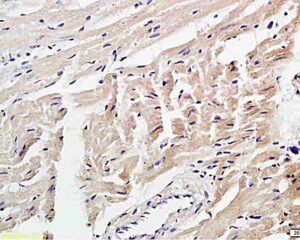4-hydroxy-2-nonenal (4-hydroxynonenal, 4-HNE) is a highly reactive aldehyde generated by the exposure of polyunsaturated fatty acids to peroxides and reactive oxygen species (ROS). It non-enzymatically forms stable protein adducts with histidine, lysine, and cysteine side chains that have been used as biomarkers for oxidative damage in cells. Conditions where 4-HNE immunoreactivity has been observed include include inflammation, neurodegenerative diseases, and ischemic damage to the heart and brain. Aldehydic products of lipid peroxidation, such as 4 hydroxynonenal (4 HNE), have been implicated in the etiology of pathological changes under oxidative stress as a key mediator of oxidative stress induced cell death. It is a stable product of lipid peroxidation, is proarrhythmic and may contribute to the cytotoxic effects of oxidative stress 4-HNE has been hypothesized to play a key role in cell signal transduction, in a variety of pathways from cell cycle events to cellular adhesion.
Clone
Polyclonal
Isotype
IgG
Host species
Rabbit
Species Reactivity
Human, mouse, rat, monkey
Cellular Localization
cytoplasm
Positive Control
pancreas, colorectal carcinoma cells
Applications
ELISA, IF, IHC, WB
Intended Use
Research Use Only

